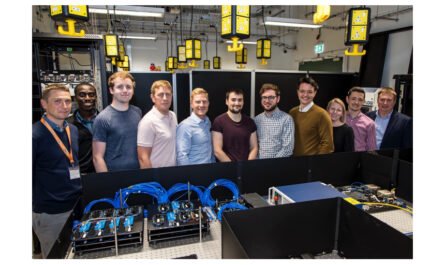We explore several promising areas in computing where startups can hypothetically reap immense … [+]
The field of computing is constantly evolving, providing numerous opportunities for startups to innovate and disrupt existing markets. This is more visible now than ever with Nvidia becoming the most valuable company in the world on the basis of being the hardware infrastructure layer of the AI revolution, and most if not all big tech companies relying on computing in fundamental ways for their offering.
In this article, we’ll explore several promising areas in computing where startups can hypothetically reap immense benefits if they are able to innovate.
1. Edge Computing
Edge computing involves processing data closer to where it is generated rather than relying on centralized data centers. This approach reduces latency, bandwidth usage, and can enhance data privacy. As the number of IoT devices increases, the demand for edge computing solutions is expected to grow.
Moreover, the by definition decentralized nature of the field might create an environment where multiple startups take a chunk of the market by providing case-specific and niche solutions, rather than one startup monopolizing it. This makes investment in the field at least on theory less risky, which is great news for early-stages startups that don’t have the backing of the computing giants of the world.
Startups can develop platforms and tools that enable efficient data processing at the edge. For example, FogHorn Systems offers edge intelligence software for industrial IoT applications, while Edgeworx provides an edge computing framework that simplifies deployment and management.
By focusing on sectors like smart cities, autonomous vehicles, and healthcare, startups can create solutions that improve real-time decision-making and reduce dependence on centralized cloud services.
2. Neuromorphic Computing
Neuromorphic computing aims to mimic the neural structure and functioning of the human brain to create more efficient and intelligent computing systems. This approach has the potential to revolutionize fields like machine learning and robotics by providing more power-efficient and adaptive solutions.
Startups can focus on developing neuromorphic chips, software, or complete systems. For instance, BrainChip Holdings is working on neuromorphic processors that can perform advanced AI tasks with low power consumption. Another example is SynSense, which develops neuromorphic sensing and computing solutions for real-time AI applications. The ability of neuromorphic computing to handle complex tasks with minimal energy makes it an attractive area for innovation.
3. Serverless Computing
Serverless computing allows developers to build and run applications without having to manage the underlying infrastructure. This approach can reduce operational costs and simplify the deployment process, making it an attractive option for many businesses.
Startups can offer serverless platforms, tools, or services that help businesses adopt this paradigm. For example, companies like Netlify and Vercel provide serverless platforms for deploying web applications, while Cloudflare Workers offers a serverless framework for running JavaScript functions at the edge. By focusing on improving the developer experience and providing robust serverless solutions, startups can capture a growing market interested in flexible and cost-effective computing options.
4. Augmented Reality (AR) Cloud
The AR Cloud is a persistent 3D digital representation of the real world that enables shared AR experiences across devices and users. This technology has the potential to transform industries like retail, gaming, real estate, and navigation by providing immersive and interactive experiences.
Startups can develop AR Cloud platforms, content, and tools that facilitate the creation and sharing of AR experiences. For example, 6D.ai, acquired by Niantic, was working on building a 3D map of the world to enable shared AR experiences. Another startup, Scape Technologies, focused on creating precise location-based AR services. By advancing the AR Cloud infrastructure, startups can unlock new possibilities for augmented reality applications and services.
5. Federated Learning
Federated learning is a collaborative machine learning approach that trains algorithms across multiple decentralized devices or servers without sharing raw data. This method enhances privacy and security while enabling the use of large, distributed datasets.
Startups can develop federated learning frameworks, tools, or applications for industries that handle sensitive data, such as healthcare and finance. For example, Owkin uses federated learning to train AI models on healthcare data from multiple hospitals without compromising patient privacy. By providing solutions that enable federated learning, startups can help organizations leverage the power of data while maintaining compliance with privacy regulations, which becomes a complex problem to navigate in most legislations.



